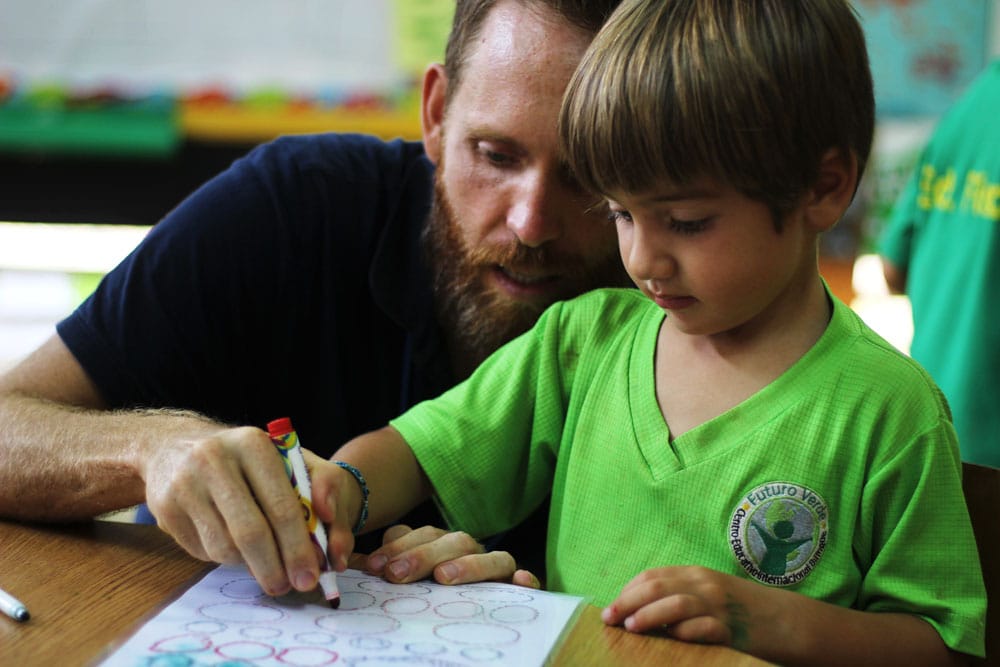I’m often asked by parents to recommend strategies they can implement at home to support the development of their child. There are 3 strategies that come to mind that are easy to apply at home that support the developing brain, set appropriate limits, and create a peaceful atmosphere.
Thinking Aloud
Thinking aloud is a simple tip that helps kids gain communication skills, problem solving abilities, and more confidence. Adjustable for any age level, you can model critical thinking and appropriate communication in real time. For example, the next time you go into the supermarket, you can explain a short list of items you plan to purchase to your child and engage their help in remembering and finding the items. On a Saturday morning, you could present a menu of option for things to do this weekend and ask for input based on what they want to do. And, simply talking as much as possible all the time asking questions about what’s happening in the moment, what happened earlier, and what might happen in the near future, can engage a child’s brain in a way that supports integration and engagement with other people and the environment. Being as verbal as possible while modeling thinking skills is an easy and great way to support the development of your child.
Connect and Redirect
This strategy comes from the book, The Whole Brain Child by Daniel Siegel, PhD. When a child is frustrated, upset, or having a conflict, we can be tempted as parents to quickly redirect our child, expecting them to follow through with what we’ve asked them to do in the precise moment. While this is completely understandable, it can be more effective, according to Dr. Siegel, to first connect with and validate the child’s emotion. By giving them a hug, and saying something simple like, “It’s hard sometimes, isn’t it?” can give them validation while connecting with the right hemisphere of their brain which is likely most dominant in that moment. After having their current experience and emotions validated, the child is then in a much more receptive state for being calmly redirected. This, then would be a more appropriate time to restate an expectation as they will be more ready to follow through. This whole process can happen in as little as 5 minutes and allows the child to feel heard and understood while also teaching them appropriate boundaries and limits.
Keeping Parent Conversations for the Parents
Finally, a way to keep a peaceful atmosphere in the home is to remember to keep arguments and difficult conversations among parents, saved for a time when children are not around. This can sometimes be difficult but with practice, can reduce stress and anxiety in the home. By choosing, as adults, to disengage from conflict until we are calm and saving conversations for later, we allow children to be free from the worry of adult problems. When exposed to constant conflict and disagreement, chronic stress can set in and create a whole list of problems that aren’t necessary or appropriate for kids to deal with. By letting kids be kids and saving adult conversations for later, you can help your child free up more mental space for things like imagination, creativity, and play which supports their development in a positive way.


